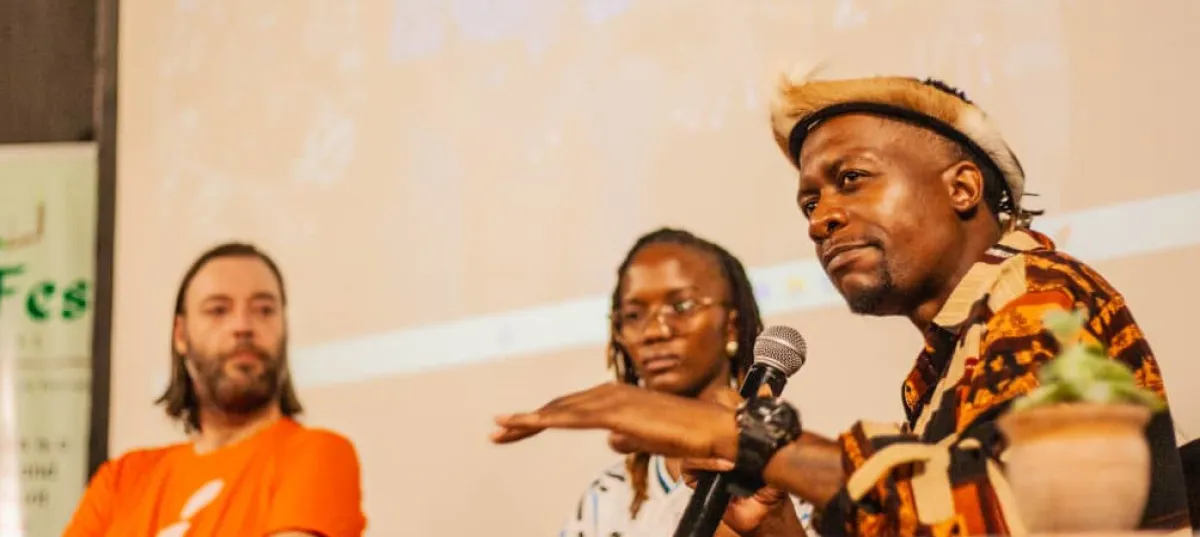Harare's New Literary Mecca

Philani A. Nyoni is a Zimbabwean-born creative artist whose work spans literature, film and theatre.
For those of us who dreamt of literary careers for a very long time, the wonderful legends like Dambudzo Marechera (House Of Hunger), Ngũgĩ wa Thiong'o (Devil On The Cross), Etienne van Heerden (30 Nights In Amsterdam) sharing their lives and works in Harare carried deep fervor that only the deeply religious know. Today these stories represent a golden age of reading and literature that is long gone with the decline and eventual demise of the Zimbabwean International Book Fair.
In the end, all things must end. And some things must begin. Although it is not, in a strict sense, a successor to the Zimbabwe International Book Fair, the Harare International Literature Festival has filled a gaping cavity in the literary space, as was evident during its eleventh edition held between the 27th and 30th of November 2024.
The festival kicked off with a vibrant ceremony hosted by the celebrated Brita Masalethulini within major highlights, after all the speeches, being performances from Sarungano, Ulethu, Beadly Sibiya, Mambo Guramatunhu, Nqobile Malinga, Hupepe Chule, Nomonde Sky and an inspiring presentation by its Guest of Honour, the claimed author Petina Gappah (Rotten Row). A special compliment must be paid to the finger food supplied by The British Council and the Irish Embassy.
Unlike the Book Fair, LitFest is not primarily a trade event, it is expressly a festival with deep focus on all the pillars of expression from performance, creation, distribution and all the other nuances in between. Based in the capital of a country once hailed as the most literate on the African continent, it stands a testament to that proud legacy with a uniquely robust programme that combines literary practitioners from across the world.
There were creative writing workshops, sessions on illustration, the power of storytelling, adaptation of literary works into film, digital storytelling, the trade of books,rights and translations, and a lot more discussions, caucuses, seminars across the three days; then many more in informal corners both loud and quiet.
For one as deeply committed to the craft of writing and all its cousins, this festival led by veteran writer and poet Chirikure Chirikure (Hakurarwi) becomes some sort of annual Mecca that must be allowed and supported to thrive in order to promote a symbiotic relationship with the wider literary sector across the world. The organising team expresses deep gratitude to the Culture Fund of Zimbabwe, Moleskine Foundation, Alliance Francaise Harare, the Swedish Arts Council, the University of Glasgow, the Embassy of Switzerland in Zimbabwe, British Council Zimbabwe and the many other contributors who made the eleventh edition a success.
Their assistance is testament to the importance of this unique space for creatives to meet and cross pollinate, and particularly allowed this year's edition to be garnished with the presences of creators such as the poets Nomonde Sky and Thabang Shai from South Africa, Lame Pusetso and Sidos from Botswana, Kristian Carlson, a poet and publisher from Sweden, to name but three countries and their participants, and others more both local and from abroad; some joining us from Freetown in Sierra Leone, some like Alice Vye Henningway joining in from Spain via the magic of the internet to talk about her book Nyika, I Love You after it was recently acquired for film adaptation in Hollywood.
The presence of Zimbabwean literary heavyweights such as Albert Nyathi, Divine Ndhlunkulu Ignatius Mabasa, Memory Chirere, Virginia Phiri, was a stark reminder that the literary world is a familial place, so loving the evening of the 28th saw a celebration of Musaemura Zimunya who had recently turned 75.
It is a familial space, and writers are a community that transcends superficial differences of all sorts. That is the fundamental. It is a democratic space where voices must be heard no matter where they come from. It is a space that has recently welcomed the Retired Major General Bonyongwe, the former head of the Central Intelligence Organisation. It was a queer irony to watch the general, a man who once headed an institution considered by many as the right arm of the suppression of free expression and all the freedoms literary minds dream about, rub shoulders with people who have been persecuted and murdered by that entity. Having written his memoir, he seems now to understand (in his own words:) that a nation without historical records is a poor nation. Indeed, as the theme of the festival proffers: Stories Are The Measure Of Life.



